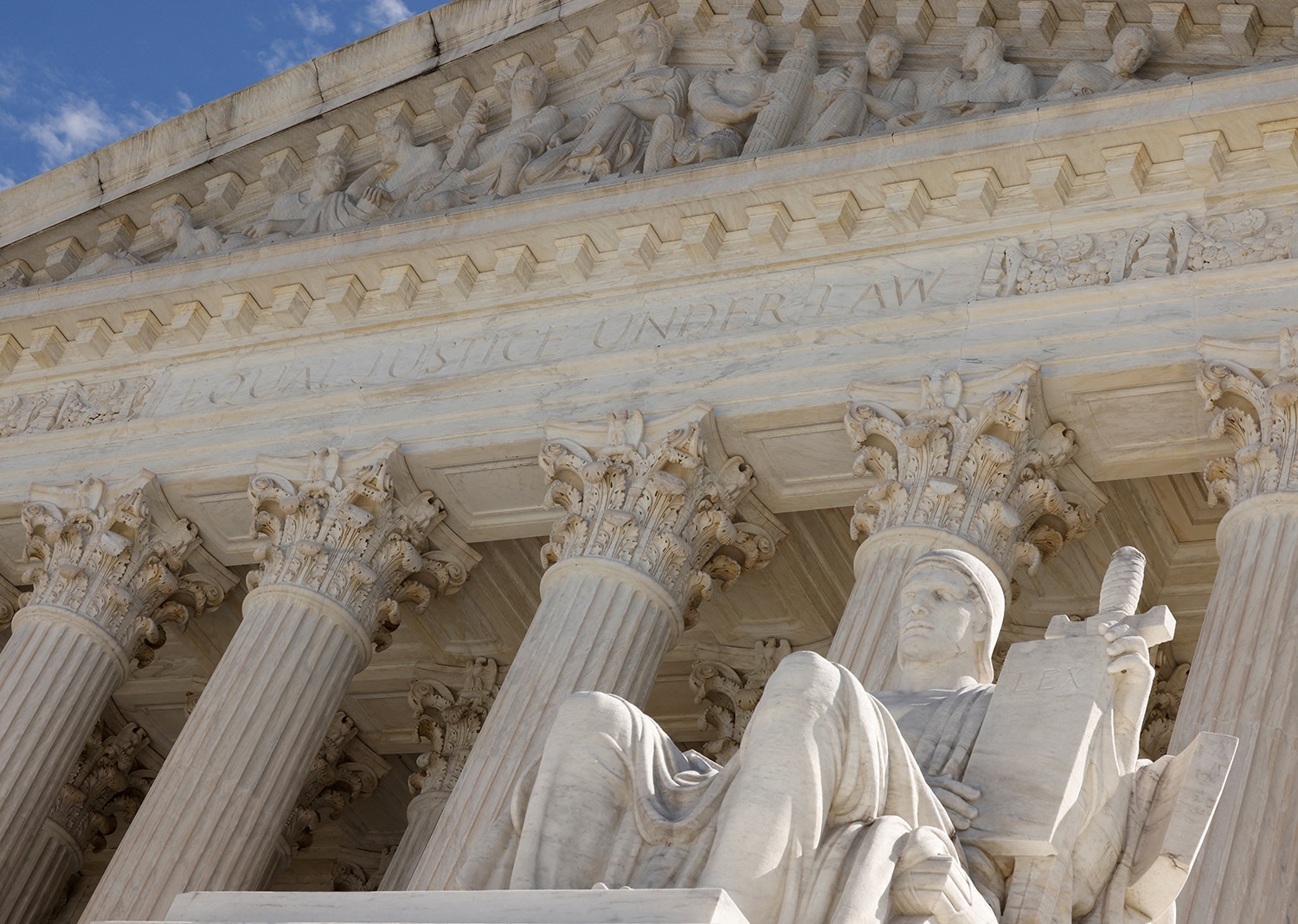WASHINGTON (OSV News) — The Supreme Court temporarily allowed Idaho on April 15 to enforce a ban on certain types of medical or surgical gender reassignment procedures for minors who identify as transgender.
State officials asked the high court to allow them to enforce the law while legal challenges to it play out. The court, on ideological lines, granted that request, however, they exempted the plaintiffs who brought the case.
Supreme Court decision
But the justices’ main focus in the 6-3 ruling did not appear to be the Idaho law itself, but rather the question of universal injunctions, or when a single judge issues a wholesale ruling beyond the parties involved in the case.
“In recent years, certain district courts across the country have not contented themselves with issuing equitable orders that redress the injuries of the plaintiffs before them, but have sought instead to govern an entire State or even the whole Nation from their courtrooms,” Justice Neil Gorsuch wrote in his concurring opinion.
“A rising number of universal injunctions virtually guarantees that a rising number of ‘high-profile’ cases will find their way to this Court,” Gorsuch wrote, adding, “As in so many other recent cases, the district court’s universal injunction effectively transformed a limited dispute between a small number of parties focused on one feature of a law into a far more consequential referendum on the law’s every provision as applied to anyone.”
Support and opposition
Idaho’s law is part of a broader push by some Republican-led states seeking to restrict such physical or hormonal interventions and also to ban student athletes who identify as transgender from competing in school sports on teams that do not correspond to their biological sex. According to the American Civil Liberties Union, the group is tracking more than 400 pieces of legislation the organization opposes as “anti-LGBTQ bills” in the current legislative session.
Supporters of prohibitions on gender transition surgeries or hormones for minors who identify as transgender say such efforts will prevent them from making irreversible decisions as children that they may later come to regret as adults. Critics of such bans argue that preventing those interventions could cause other harm to minors, such as mental health issues or physical self-harm.
Legal arguments
Idaho Attorney General Raúl Labrador, who with attorneys from Alliance Defending Freedom and Cooper & Kirk PLLC, sought that outcome in an emergency motion filed in March, ADF said.
“I’ve witnessed firsthand the devastating consequences of drugs and procedures used on children with gender dysphoria. And it’s a preventable tragedy,” Labrador said in a statement. “The state has a duty to protect and support all children, and that’s why I’m proud to defend Idaho’s law that ensures children are not subjected to these life-altering drugs and procedures. Those suffering from gender dysphoria deserve love, support, and medical care rooted in biological reality. Denying the basic truth that boys and girls are biologically different hurts our kids. No one has the right to harm children, and I’m grateful that we, as the state, have the power — and duty — to protect them.”
The American Civil Liberties Union and the ACLU of Idaho said in a joint statement that while the ruling “importantly does not touch upon the constitutionality of this law, it is nonetheless an awful result for transgender youth and their families across the state.”
“Today’s ruling allows the state to shut down the care that thousands of families rely on while sowing further confusion and disruption,” their statement said. “Nonetheless, today’s result only leaves us all the more determined to defeat this law in the courts entirely, making Idaho a safer state to raise every family.”
USCCB guidance on sexuality
In guidance on health care policy and practices released in 2023, the U.S. Conference of Catholic Bishops’ Committee on Doctrine opposed interventions that “involve the use of surgical or chemical techniques that aim to exchange the sex characteristics of a patient’s body for those of the opposite sex or for simulations thereof.”
“Any technological intervention that does not accord with the fundamental order of the human person as a unity of body and soul, including the sexual difference inscribed in the body, ultimately does not help but, rather, harms the human person,” the document stated.
Pastoral approaches to gender dysphoria
Several Catholic dioceses also have begun forming pastoral approaches to gender dysphoria. For instance, the Diocese of Des Moines, Iowa, issued guidance and policies on ministering to people experiencing gender dysphoria. It called for coherence with the Church’s teaching on the inseparability of gender from biological sex while emphasizing pastoral compassion for children or adults experiencing conflict between their biological sex and gender.
A 2022 study by the UCLA School of Law Williams Institute found that there are approximately 1.6 million people in the U.S. ages 13 and older who identify as transgender, with an estimated 300,000 of that population who are minors.





